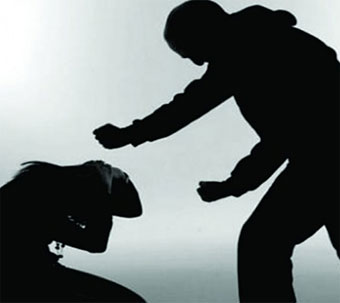 From this Sunday, victims of violence, especially those who have suffered domestic violence or persecution, will be able to obtain greater protection in any Member State of the European Union.
From this Sunday, victims of violence, especially those who have suffered domestic violence or persecution, will be able to obtain greater protection in any Member State of the European Union.
The new rules mean the quick and easy recognition across the EU of removal, protection and prohibition decisions issued in a Member State, thanks to a simple certification procedure.
"The rights of victims of violence will also be guaranteed outside their own country, wherever they are in Europe," said Věra Jourová, EU Commissioner for Justice, Consumers and Gender Equality.
"It is estimated that, in the EU, one in five women is a victim of violence at some point in their life and, unfortunately, the aggressor is often a person close to the victim, like their spouse," he added.
Henceforth, any citizen who has been a victim of domestic violence will be able to travel abroad in complete safety by simply transferring the decision that protects him from his aggressor. Until now, victims have been forced to go through complex procedures to obtain recognition of protection measures in other EU Member States, having to introduce a different certification procedure in each country.
From now on, protection orders will be easily recognized in any EU Member State, which will allow victims of violence to travel without having to undergo lengthy procedures.
“The new procedure will guarantee victims of violence, men and women, the protection they deserve and the possibility to continue their lives in peace. They will be able to decide to reside in another EU Member State or travel abroad on holiday without fear for their safety,” added Věra Jourová.
The new mechanism is provided for in two separate instruments: the Regulation on the mutual recognition of protection measures in civil matters and the Directive on the European Protection Order.
Together, the two instruments will ensure that all victims of violence have the possibility to obtain recognition of the protection decisions that concern them in any EU Member State.
The mechanisms in question reflect the differences in Member States' national protection measures, which may be of a civil, criminal or administrative nature. All these rules will facilitate the free movement within the EU of the most common protection measures.
More support for victims
The need to support and protect victims is supported by the report published today by the EU Agency for Fundamental Rights (FRA), whose findings indicate that there is a need for more services specifically targeted at supporting victims in the EU.
Despite the improvements made, victim support services face certain shortcomings in many Member States.
Proposals for concrete improvements include ensuring victims' access to targeted support services, including post-traumatic care and counseling, removing bureaucratic obstacles that hamper victims' access to legal aid, and informing citizens about their rights and available services. .
The European Commission remains committed to improving the rights of the 75 million citizens who are victims of crime every year.
In 2012, an EU directive that sets minimum standards on the rights, support and protection of victims across the EU entered into force (IP/12/1066) and will become binding on Member States on 16 November 2015.
Thanks to measures such as the EU-wide protection orders, which will apply from next Sunday, as well as the minimum rights of victims, the European Commission is working to strengthen the rights of citizens who are victims of crime, independently. their place of origin and the place where the crimes were committed.


















Comments